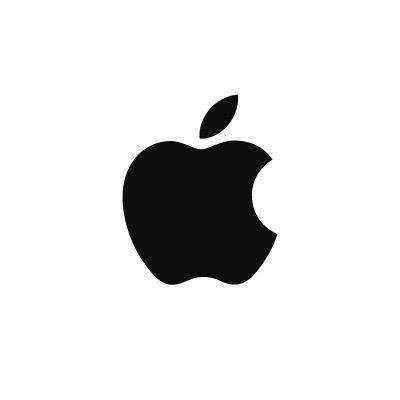Apple Inc. recently released a blowout first quarter earnings report for fiscal 2021 that was hailed by investors as the best quarter in the history of smart phones. Year over year revenue increased by double digits in all product categories and for the first time ever, Apple reported a revenue of over $100 billion in a single quarter.
The quarter in 2020 was the same period when all states reported increased unemployment and about 350,000 Americans succumbed to COVID-19. Notably, about 60% of Apple’s revenue in the quarter came from the sales of its flagship product – the iPhone.
Since the launch of it’s first iteration in 2007, the iPhone has revolutionized the way people around the globe communicate. iPhone sales and usage have increased consistently over the last decade and it is estimated that about 45% of the smart phone users in America use an iPhone; I am one as well.
Without a doubt, the hand-held mobile device has been a boon during the ongoing pandemic. My practice, the medical institution where I work, and my patients have come to rely more and more on such technology and services.
I have been able to provide remote care to my patients as e-visits have skyrocketed over the past year and patients are now able to access their medical records and test results on their mobile phones. Tablets and cell phones have even made it possible for relatives to virtually visit COVID affected family members.
Owning an iPhone however has an inadvertent dark side – it is worsening the wealth inequality in America.
Over the last year, Apple found itself well poised for the new work-from-home, e-health and remote learning environment. By mid-summer, rising sales made Apple the country’s most valuable corporation, surpassing the $2 trillion market capitalization mark.
There is nothing fundamentally wrong with a company providing services and making money in return, but companies like Apple pay low federal income taxes, spend resources on stock buybacks and dividend payments and have high executive compensations. All of this worsens the already existing chasm of wealth inequality. To be clear, this trifecta of actions is not unique to Apple and falls well within the confines of existing legal framework and tax codes.
Like many large corporations, Apple has been and continues to be a beneficiary of low corporate tax; proponents of fair taxation have long argued for revised higher rates. As early as 2011, a Senate subcommittee reported that Apple paid an effective tax rate of 7.3%. To a large part, lower taxation was made possible by the incorporation of and its partnership with subsidiaries in Ireland.
A study published in 2019 by Fair Tax Mark in the UK reported that Apple, along with five other companies from the Silicon Valley, avoided paying over $100 billion in taxes over the last decade.
There is ample evidence that lower corporate taxation worsens income inequality; which in turn adversely affects healthcare delivery and outcome. Apple is –at least in part—contributing to the ever-increasing wealth gap and societal health inequity.
Over the last few years corporations have spent a record amount of money on their share repurchasing programs, known as stock buyback; Apple has undoubtedly been the leader in this category. Since its initial authorization in 2012, Apple spent in excess of $500 billion on stock repurchase, hugely increasing its asset price.
The financial gains from such stock price increases go disproportionately to the richest; the top 10% of Americans own about 85% of all stocks. For a vast majority of the Americans, the variations in the stock market have relatively little effect on their wealth or well-being.
Dividends paid by companies also disproportionately benefit the rich, since the most income for the bottom 90% of the American households comes from their wages.
In the wake of the pandemic, many companies have halted their repurchase programs, yet analysts expect Apple to increase its stock buyback and its dividend this year following the blowout earnings report. This expense allocated by Apple is leaving the average American behind.
Additionally, exorbitant CEO compensation is a major contributor to rising income inequality in the U.S. Since 1978, CEO compensation has increased an astounding 940% while a typical worker saw compensation go up by a mere 12%.
Timothy Cook, CEO of Apple, arguably fits into the profile of such highly paid CEOs. With an annual compensation of $133.7 million in 2019, he was the second highest paid CEO in America, according to a Bloomberg report.
In 2020, while the pandemic ravaged communities across the country, the increasing sale of Apple products allowed Cook to draw an almost 30% increase in pay compared to the previous year. During the same year, an average Apple employee earned about $58,000 making Cook’s salary 256-times more than the average employee.
Indeed, I am not a financial analyst. But considering the ongoing pandemic, companies can opt to redeploy resources towards their customers, employees and communities over their shareholders; a system referred to as Stakeholder Capitalism.
Apple can redirect surplus capital and make bigger investments in the community to facilitate housing, and access to healthcare and education. The capital requirements for such expenditure can be met by temporarily halting stock buybacks.
Apple can give a higher bonus to employees across all levels in the organization, not just the senior management. It can repatriate certain manufacturing jobs from overseas and create more employment opportunities within the U.S. to combat mass unemployment.
By purchasing iPhones, consumers have allowed Apple to be one of the most valuable companies in the world. It is logical to now expect Apple to act to bridge the ever-increasing wealth gap. Of course, this one company isn’t alone responsible for remedying societal inequality. But a company that can afford the second highest paid CEO in America can divest more from stockholders and lead by example.
Dr. Sumeet Dua is a practicing radiologist at the Rush University Medical Center in Chicago. He is a Public Voices Fellow through The OpEd Project.


